Uninvolved Parenting Style Example Uninvolved Parents May Be Neglectful But It's Not Always Intentional.
Uninvolved Parenting Style Example. The Child May Feel Directionless And May Feel Too Lost.
SELAMAT MEMBACA!
Examples of uninvolved parenting uninvolved parenting comes in many forms, depending on the age of a child.
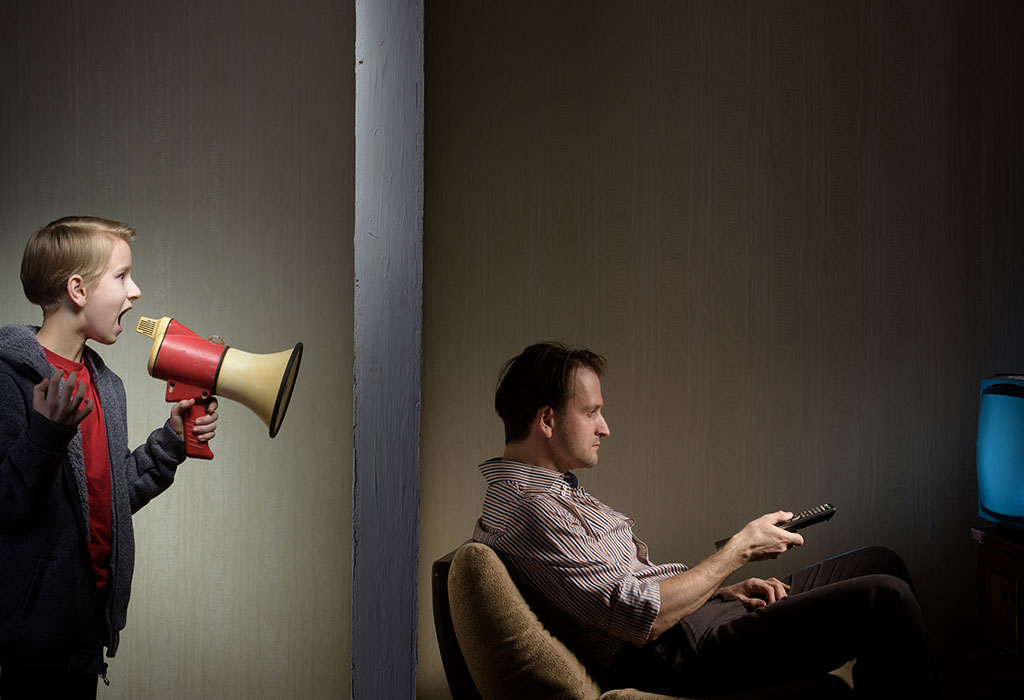
While some parents take every opportunity to nurture and.
A great example of how demandingness can be a desirable parenting trait is uninvolved parenting — because, essentially, this parenting style could benefit from much more of it.
Neglectful parents are low in both demandingness and support, explained lumanlan.

Uninvolved parents make few to no demands of their children and they are often indifferent, dismissive, or even completely neglectful.
Some examples of uninvolved parenting are:
There is emotional distance between the parent and the child because they spend little or no time together.
/171626170-56a796663df78cf77297664b.jpg)
The child is left to do everything on his or her own, from playing to making major decisions.
Examples of uninvolved or neglectful parenting style:
Here are a few examples of how an uninvolved parent would react under certain scenarios.

Uninvolved parenting or neglectful parenting is a type of parenting in which the parents tend to show little or no interest in the child's life.
Parents may intentionally or unintentionally ignore their child in a way that no interaction exists between them.
An uninvolved style of parenting is similar to being neglectful.

They don't ask the child if they want to do an activity or pay attention enough to notice the child's need to do it.
Uninvolved parenting is a parenting style characterized by low responsiveness and low demandingness.
These neglectful parents are uninvolved in their child's life.

They also do not set boundaries or discipline their children.
Uninvolved parents may be neglectful but it's not always intentional.
A parent with mental health issues or substance abuse problems, for example, may not be able to care for a child's physical or emotional needs on a consistent basis.
What's been labeled as uninvolved or neglectful parenting is a style that is often outside the parent's control.
If you're a single parent working two jobs to make ends meet, for example.
They expanded baumrind's permissive parenting style into two different types:

Uninvolved parenting, sometimes referred to as neglectful parenting, provides basic needs for the child such as shelter, clothing, and food.
The parent does not provide expectations for social or academic behaviors.
Furthermore the parent does not support or nurture the child when it comes to emotions, relationships, and self esteem.
Uninvolved parents are like permissive parents in their failure to enforce standards.
But unlike permissive parents, uninvolved parents are not nurturing and warm.
Uninvolved in this parenting style, parents are unresponsive, unavailable and rejecting.
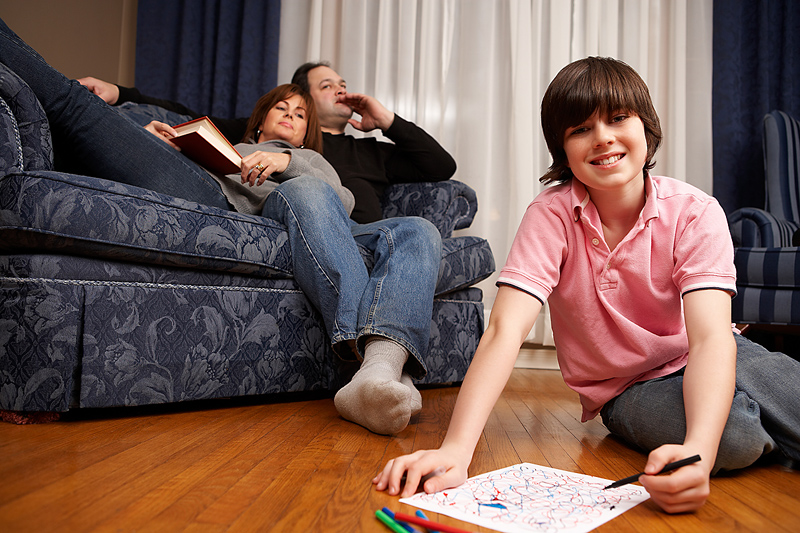
Parents are emotionally detached and unresponsive to the child.
The emotional needs of the child.
For example, need for appreciation, security, love, nurturing are overlooked.
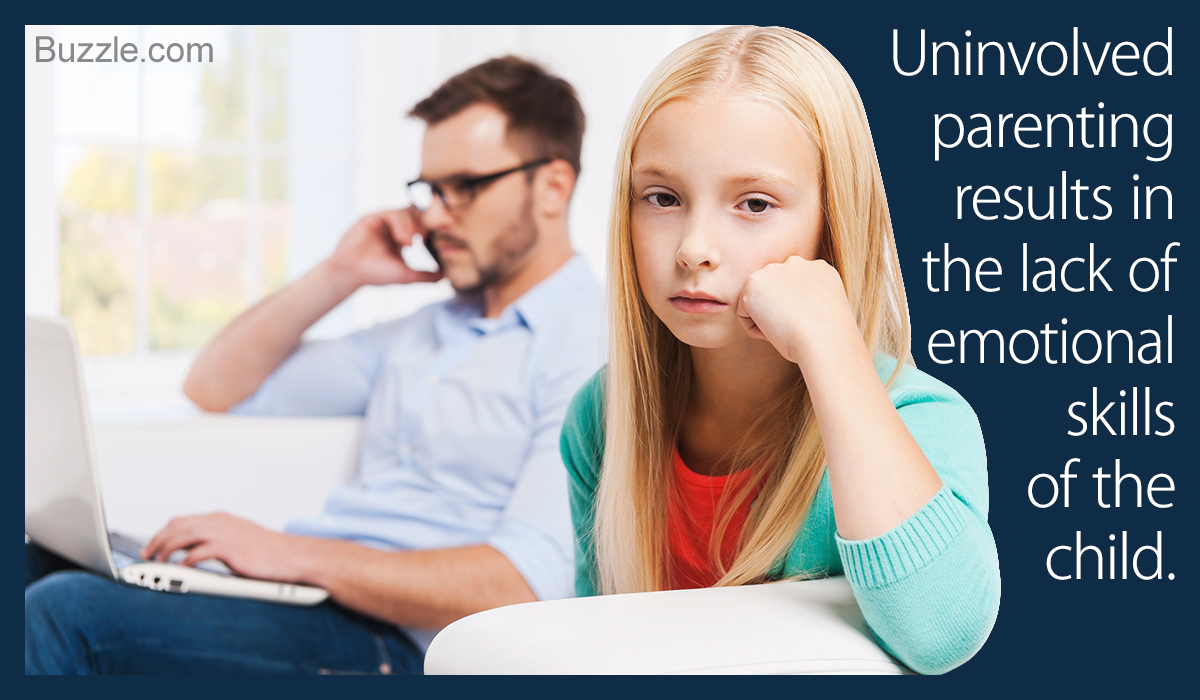
David was a military man who was away from his children and served as the king of israel for much of his life, but this was not what caused him to become an uninvolved parent.
David had a minimum of six wives and at least nineteen sons.
Uninvolved parenting style may affect a child in more than one way, and some of the effects of neglectful parenting on a child may include the following:

The child may struggle to find his identity and may often be too timid.
Using a clip from the matilda movie, we would like the viewers to observe an example of how an uninvolved parent would act.
The parenting style used to rear a child will likely impact that child's future success in romantic, peer and parenting relationships.
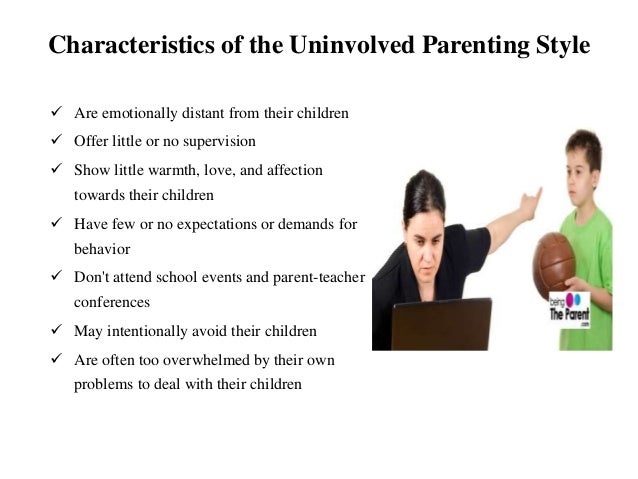
Authoritative, authoritarian, and permissive/indulgent, later, maccoby and martin added the uninvolved.
The final parenting style of the four typologies suggested by baurmind (2005), maccoby and martin (1983) is the indifferent parent.
Unlike the authoritarian parent, authoritative parent, and permissive parent, the indifferent or dismissive parent is relationally disconnected from the child.

A common way of addressing these complexities is to organize parenting behaviors into four distinct parenting styles:
Authoritarian, permissive, uninvolved, and authoritative (maccoby & martin, 1983).
The uninvolved parenting style is also known as the negligent parenting method.

There is very little communication between the parents and their kids.
Uninvolved parenting is neither demanding nor responsive.
Parents who are neglectful of their children's needs.

A common mind set for this parenting style is to think or say to your children, your on your own.
Here is how a permissive parent reacts to various typical scenarios:
You are at the grocery store, your son asks you for ice cream, despite already having two during the day.

You don't specify timings for play, study, or sleep.
This type of parenting style is usually characterized by parents having very little demands as well as being low responsiveness and very minimal communication especially towards their children.
These parents usually fulfill the basic needs of their children but are known to be detached from the lives of their children.

In this video i talk about uninvolved parenting which has.
Uninvolved parenting was the style that maccoby and martin added to baumrind's original three parenting styles.
It is also sometimes referred to as the neglectful parenting style and is characterized by very low responsiveness and low demands.

These parents tend to be great at all of the warm, fuzzy interactions that build strong attachment but may allow children to behave in ways that are younger than their developmental age.
Permissive parenting is a parenting style that tends to be very gentle and affectionate, with few rules or expectations for how a child should behave, child therapist katie lear explained to scary mommy. Uninvolved Parenting Style Example. These parents tend to be great at all of the warm, fuzzy interactions that build strong attachment but may allow children to behave in ways that are younger than their developmental age.
Uninvolved parenting, sometimes referred to as neglectful parenting, is a style characterized by a lack of responsiveness to a child's needs.

It lets them learn by themselves.
Parents may be uninvolved to varying degrees.
While most parents look after the basic needs such as food and shelter for their.

These neglectful parents are uninvolved in their child's life.
They do not meet their child's needs , whether it's basic or emotional needs.
What is an example of uninvolved parenting?

With uninvolved parents, children receive little to no guidance, discipline, or positive reinforcement from their parents.
Uninvolved parenting style may affect a child in more than one way, and some of the effects of neglectful parenting on a child may include the following
Advice home > parenting > parenting styles:
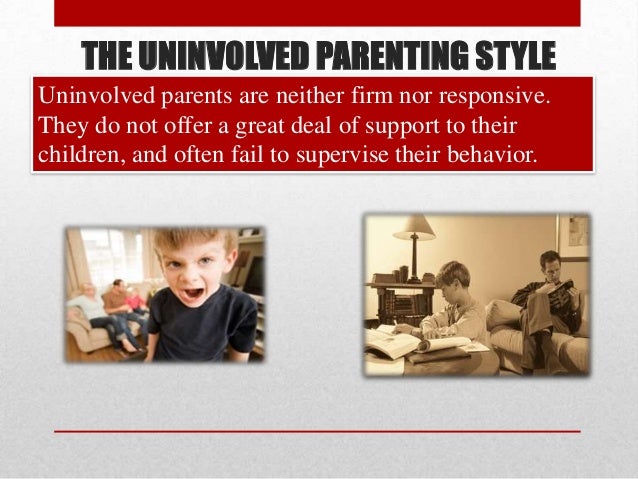
Each parent develops their way of dealing with their child.
There are four recognized styles, but because parents often use different parenting styles at various times, each parent has.
What exactly does the uninvolved parenting style appear to be at a look?

For example, helicopter parenting is similar to the authoritative style, but with a little more involvement, or some might say free range parenting resembles the uninvolved style, but with a conscious decision to allow more independent thinking that is in the best interest of the child.
The uninvolved parenting style (often referred to as neglectful parenting) as the name implies, the parent is totally disengaged and emotionally uninvolved in their child's life.
There is little if any expression of love and affection.

Uninvolved parenting is a parenting style not very famous.
Yet many parents practice it.
Here's everything you need to know about it.
Therefore, in uninvolved parenting, the parent neglects the child's physical and emotional needs.
Parenting uses different approaches to achieve its ends.
Each parenting style suits different types of parents.

Also, read on this website
Uninvolved parenting examples how to come out of uninvolved parenting style?
Uninvolved or neglectful parenting style has minimal or no involvement in children's overall requirements.
Using a clip from the matilda movie, we would like the viewers to observe an example of how an uninvolved parent would act.
In the uninvolved parenting style, parents seem to not respond to the.
Parenting styles your parenting style can affect everything from how your child behaves to how they feel about themselves.
:max_bytes(150000):strip_icc()/1095045-article-types-of-parenting-styles-5a7cb6aaa18d9e00362ef5eb.png)
There tend to be few rules.
Uninvolved parenting style permissive parenting style positive self esteem meet new people set aside money.
For example, one may adopt a better diet or change sloppy habits to set a good example for a child.
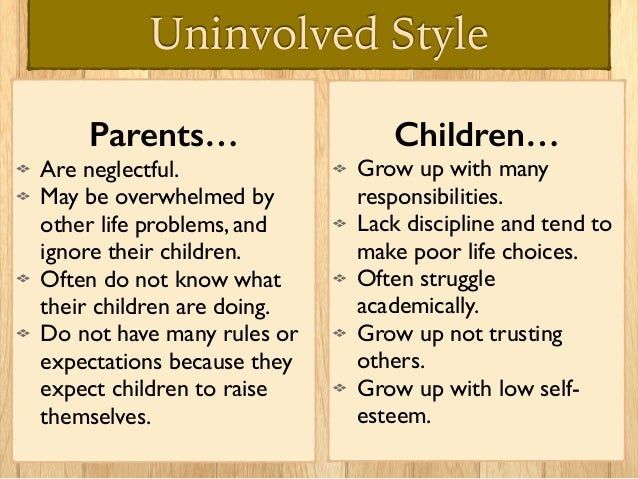
Discover which style leads to the best outcomes for kids.
Uninvolved parents tend to have little knowledge of what their children are doing.
There tend to be few rules.

Also, instead of setting strict rules, you should instead lead by example.
Nurturant parenting (also known as «slow parenting») is characterized by its steady approach.
Parents who use this style of parenting may be lacking in emotional and physical support.
Unlike the uninvolved parenting, these parents are overwhelmingly more supportive and show up for the important events.
Uninvolved parenting is that kind of a parenting style where parents provide their children with basic amenities but they fail to have the personal touch with their child in terms of what is the child going through at school or at home and the parents get too involved with their personal life that the child.
A parenting style is a psychological construct representing standard strategies that parents use in their child rearing.

The scientific approach to 4 other famous parenting styles partially defined by developmental psychologist diana baumrind:
Authoritative parenting, authoritarian parenting, permissive parenting and uninvolved parenting.
Three examples of unfortunate parenting approaches with detrimental.

Generally, there are four different types of parenting styles.
For example when we are feeling overly stressed, it can be easy to slip into authoritarian, permissive, or even uninvolved styles.
(a fourth style, neglectful parenting, was added to address severely uninvolved parents, which we don't discuss below.) since then, though, others have come along and carved out their own parenting styles that have developed massive cult followings.

Uninvolved parenting, also known as neglectful parenting, is neither demanding nor responsive.
Some examples of uninvolved parenting include first, acknowledge it if you use this parenting style (many uninvolved parents don't see an issue with their behavior).
Uninvolved parents are like permissive parents in their failure to enforce standards.

There are 4 main styles of parenting:
Authoritative, authoritarian (it is different), permissive, and uninvolved.
An example of how an authoritative parent would act is illustrated in the following circumstance:

Not surprisingly, our parenting style has a major impact on our children.
Based on the work of baumrind [1, 2] and maccoby and martin [3] we often talk about four broad styles:
Authoritarian, permissive, uninvolved and authoritative.
:max_bytes(150000):strip_icc()/465892773-56a793695f9b58b7d0ebd6fd.jpg)
Important a things to remember.
As you read more about parenting styles, you might start analyzing your own relationships with both.
Uninvolved parents aren't able to meet their kids' emotional or physical needs.

Not all parents fit into just one parenting style, either;
Many might be a combination of two or even three.
Not all parents fit into just one parenting style, either; Uninvolved Parenting Style Example. Many might be a combination of two or even three.
Comments
Post a Comment